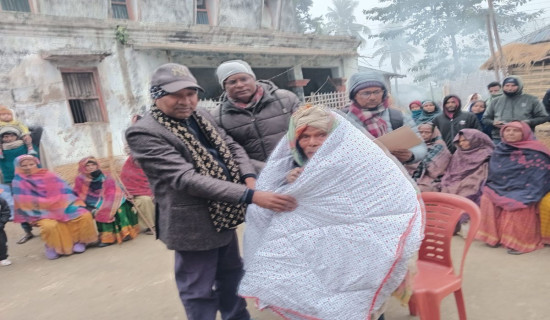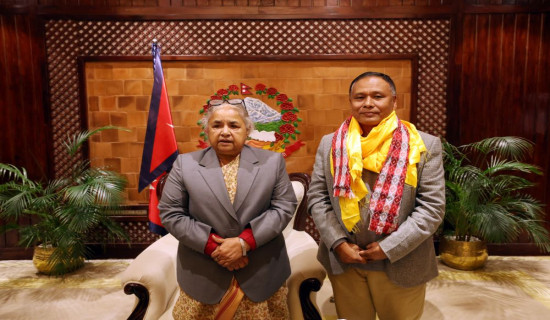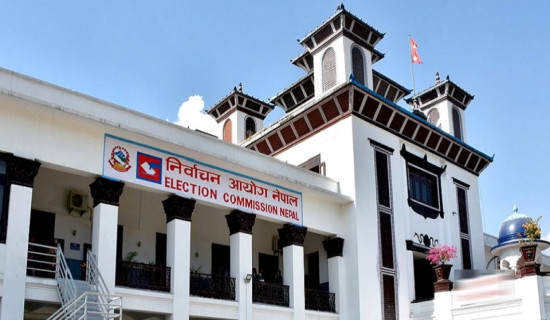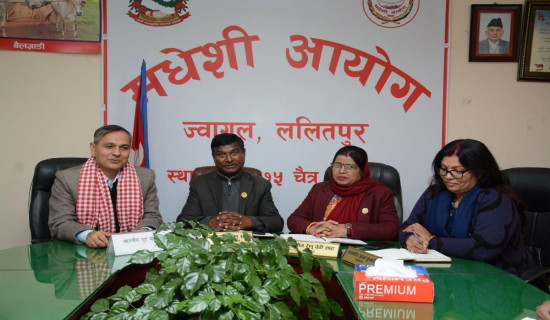- Thursday, 8 January 2026
'Legislation yet to go a long way for BPfA implementation'
Kathmandu, Nov 28: Women members of the House of Representatives (HoR) and the National Assembly (NA) have expressed concern that the Nepali parliament has not yet fully embraced or taken serious action on the Beijing Platform for Action (BPfA) and its 12 areas of critical concern.
Speaking at an event organized by the Radha Paudel Foundation to mark the ongoing 16 Days of Activism against Gender-based Violence (November 25-December 10), they highlighted that the parliament has not adequately addressed the BPfA, a global agenda aimed at achieving gender equality and the empowerment of women and girls. The BPfA, endorsed by the Fourth World Conference on Women in Beijing in 1995, recognized 12 areas of critical concern that require urgent attention to empower women and girls.
The participants stressed that while the Constitution guarantees women's rights, these rights are not yet fully enforced, and parliament must play a crucial role in advancing them. Legislators are responsible for assessing the implementation of the BPfA and taking necessary measures to ensure progress, they said.
The 12 areas identified by the BPfA—women and poverty, education, and training of women, women's health (including sexual and reproductive health and rights), violence against women, women and armed conflict, women and the economy, women in power and decision-making, institutional mechanisms for the advancement of women, human rights of women, women and the media, women and the environment, and the girl-child—require immediate action to achieve gender equality and empowerment.
The program was supported by the UN Parliament Support Project (PSP).
CPN (UML) Chief Whip in the NA, Bhagawati Neupane, stressed the need for in-depth discussions on the Beijing Declaration to act against gender-based violence and for the improvement in the situation of human rights. She pledged to initiate the drafting of laws necessary to implement the BPfA.
HoR member Harkamaya Bishwakarma acknowledged that legislation has failed to monitor the implementation of the BPfA. NA member Garima Shah stated that although progress has been made on women's issues, much more needs to be done to empower them.
She called for political parties to engage in comprehensive discussions to address gender-based violence, discrimination, and unequal access to resources. Shah also advocated for linking the BPfA to discussions about menstruation-related discrimination.
Goma Timilsena and Ganga Dahal Belbase stressed the importance of lawmakers uniting to review the implementation of the Beijing Declaration and the commitments made by Nepal at the international level, as well as the laws resulting from those commitments.
Shanti Shrestha, Binita Kumari Singh, Rukamani Koirala, and Samjhana Thapaliya urged civil society organizations to aware parliamentary committees on these issues in writing. They committed to raising these concerns seriously during the upcoming winter session of parliament.
Former Chair of the Beyond Beijing Committee, Shantalaxmi Shrestha, pointed out that despite the government's efforts to implement the Beijing Declaration through various policies and laws, concrete results are still lacking.
She added that the National Gender Equality Policy 2077 BS has yet to be fully institutionalized. Lawmakers are expected to ensure its implementation, but this has not yet been done. Shrestha echoed the need for a comprehensive law to eliminate all forms of discrimination against women and a dedicated act to implement the Beijing Declaration.
Dignified Menstruation activist, writer, and the Madan prize winner Dr Radha Paudel pressed the need to find out the root cause of the discrimination against women and girls, despite improvements in the women's development sector. "Twelve dimensions of the BPfA are to be connected with the root cause of menstrual discrimination to meet the goals."
First and foremost, menstrual discrimination which simply means the discrimination between menstruators and non-menstruators should be understood as violence and the surface discussion on the matter will not lead to the goals, according to her.
"Menstruation discrimination is a sexual and gender-based violence and it has, at least, violated the 14 fundamental rights enshrined by the Constitution," she stated, presenting research works on the 12 dimensions of the Beijing declaration, gender-based violence, and the role of lawmakers in addressing the situation. (RSS)

.jpg)












